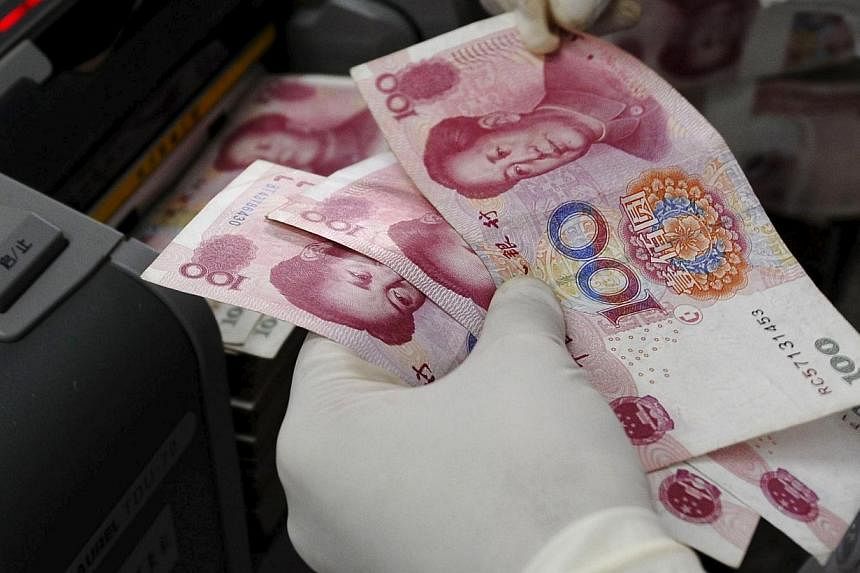HONG KONG (Bloomberg) - The yuan has become Asia's most-active currency for payments to China and Hong Kong, according to the Society for Worldwide Interbank Financial Telecommunications (Swift).
The Chinese currency accounts for an average 31 per cent of the region's payments to China and Hong Kong, up from 7 per cent in April 2012, Swift said in a statement on Wednesday.
Singapore, Taiwan and South Korea have adopted the yuan - officially known as the renminbi - for the majority of payments to the Greater China region, according to Michael Moon, head of Asia Pacific payments at Swift in Singapore.
"The Asia Pacific is clearly paving the way forward when it comes to renminbi adoption," Moon said in the statement. The naming of new yuan-clearing banks in the region should also have a positive impact on renminbi adoption, he said.
The People's Bank of China has appointed yuan-clearing lenders in 11 cities including Seoul, Sydney, Kuala Lumpur and Bangkok in the past year.
China is encouraging the yuan's global usage to bolster the case for being granted reserve status by the International Monetary Fund later this year. The yuan failed to qualify in a 2010 review as it was deemed not "freely usable."
The yuan retained its fifth ranking in global payments in April, with a market share of 2.07 per cent, Swift said. It's behind the U.S. dollar, euro, British pound and the yen.
The IMF's mission in China said on Tuesday that the yuan is no longer undervalued, and it will work closely with authorities toward inclusion, which is "not a matter of if but when."
The yuan is little changed against the greenback this year, while the Bloomberg Dollar Spot Index, which tracks the U.S. currency versus 10 peers, is up 5.3 per cent. The yuan has strengthened against all 31 major currencies over the past 12 months, data compiled by Bloomberg show.
That's even as economic growth is forecast to slow to 7 per cent this year, the least since 1990, according to the median estimate in a Bloomberg survey.
"Talks with the IMF on adding yuan to the reserve currency basket are probably underway," said Kenix Lai, a Hong Kong- based currency analyst at Bank of East Asia Ltd. "There are political reasons for the yuan to stay relatively strong even as the economy is slowing down. A stable exchange rate is instrumental to boost the yuan's global usage and its reserve- currency bid."

